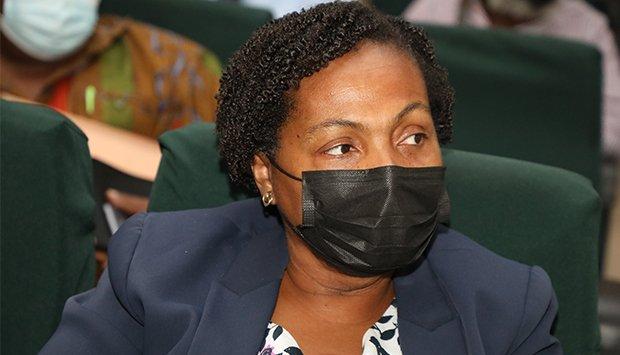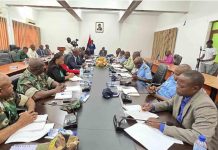Africa-Press – Angola. The Ministry of Culture, Tourism and Environment intends to elevate, this year, the musical style semba to National Intangible Heritage.
According to the director of the National Institute of Cultural Heritage, Cecília Gourgel, everything is just pending the end of a careful process to be carried out by the ministry of responsibility.
Cecília Gourgel guarantees that her ministerial department is committed to handing over the dossier for final consideration. However, she considers that, in the event that there are more issues to be reassessed, the elevation may be postponed to an opportune date to be indicated.
“As the Ministry of Culture, Tourism and Environment usually declares the assets on the list to be National Heritage on April 18, World Monuments and Sites Day, let’s see if we can reach consensus and the consequent approval of the document by the minister. of Culture Tourism and Environment, Filipe Zau. If we don’t make it, we’ll do more activities and whatever is necessary so that, if we don’t declare it by the end of the year, then we can declare it next year”, said Cecília Gourgel.
Cecília Gourgel made these statements to the press, on the sidelines of a forum on semba, held last Wednesday, at the Natural History Museum, whose focus was the presentation and proposals for framing semba musical themes subject to musical scores, aiming at the standardization of this musical style. Another useful advance in the baggage that brings together, between testimonies and documentation, Cecília Gourgel considered that there had been a rich debate there, having also appealed that the consent for the promulgation of semba to National Heritage by the competent authorities is a matter that results from the combination of ideas and a participation that involves not only the artists, as well as the engagement of the National Union of Artists and Composers and other stakeholders called to the debate, among them the journalistic class.
Manuel Gonçalves, director of the Provincial Office for Culture, Tourism, Youth and Sports of Luanda, considered it urgent to find ways that lead semba to the Intangible Cultural Heritage of Angola, a task that Luanda has a great responsibility to seek to encourage and massify the steps of the whole process.
“Regardless of the divergences and differences in reflections when approaching the subject, it is important to be ourselves, aiming at the principle that it is necessary to classify with what is possible to do. Therefore, further studies may enrich the whole work even more”, he said.
spirit of national unity
Dom Caetano was one of the figures present at the semba forum. For the musician, it is important that these discussions take place in a timely manner, so that semba can be elevated to National Intangible Heritage. As for obstacles, he pointed out the fact that the country has a culture that is very rich in rhythms, as well as the non-standardization of semba.
“We were faced with a study carried out by a conductor and, in the meantime, what we have to do, we are also studying these matters, and in a next meeting we will be more lucid about what we want, which is to standardize semba”, he said.
According to the musician, in the last seventy years, semba has been sung in different parts of the country, a reason that leads him to evaluate that it is not possible to have difficulties in accepting what is absorbed by everyone, and suggests that very quickly society must call the authorities of the national cultural college and say that more than ninety percent of musicians agree that semba should be a National Heritage Site and nominated for the World Heritage List.
“To get out of this discussion that has been going on for more than five years. For me, it’s a matter of understanding the phenomena. This year it has to go to national heritage. There is a certain lack of understanding within the national artistic class, but we cannot prevent the life of national culture”, criticizes Dom Caetano.
Also present at the forum, musician Carlos Lamartine considered that the meeting was rich and demonstrated how national music needs from a serious investment to continuous and sustainable research that helps to give due respect to the creativity of artists across the country.
“My conception is not that Angola is only semba. But, regardless of cultural diversity, semba symbolizes the spirit of national unity”, he maintained.
For More News And Analysis About Angola Follow Africa-Press






